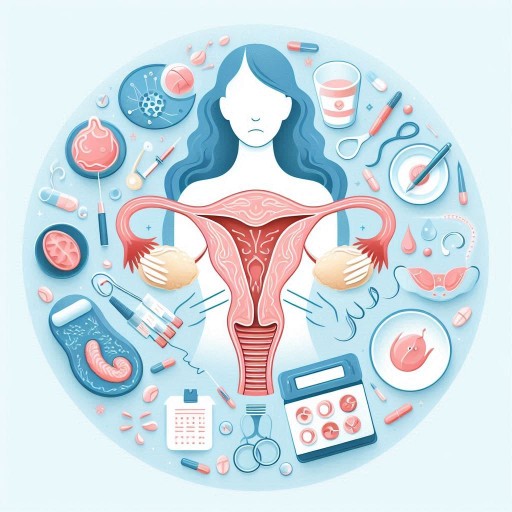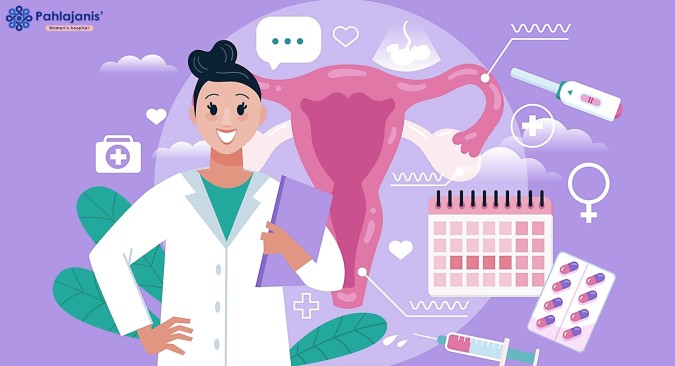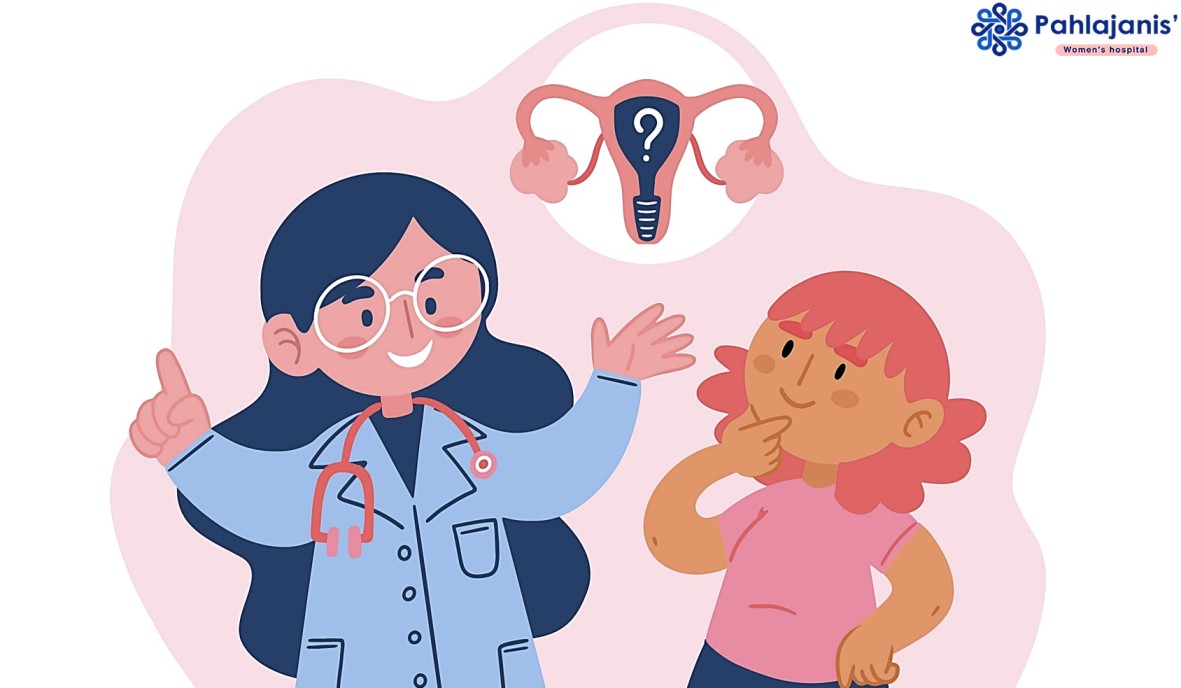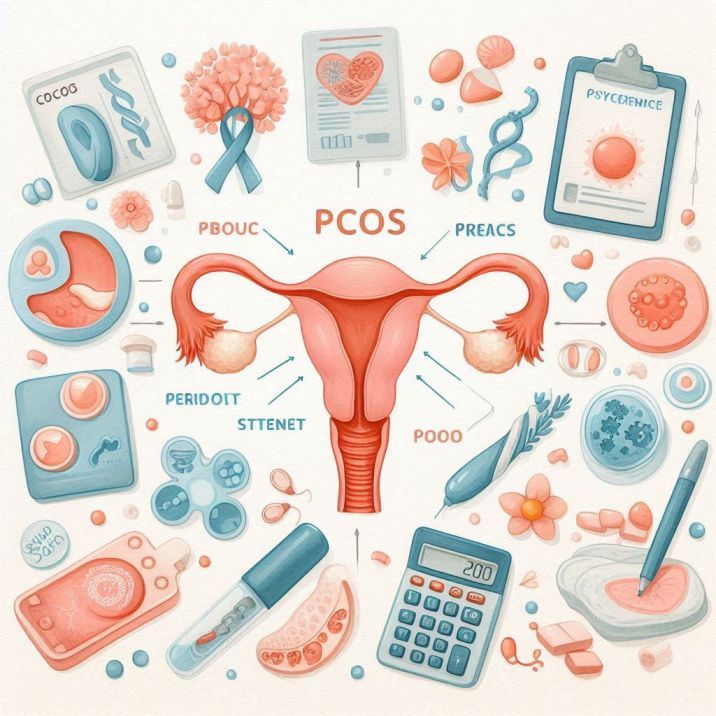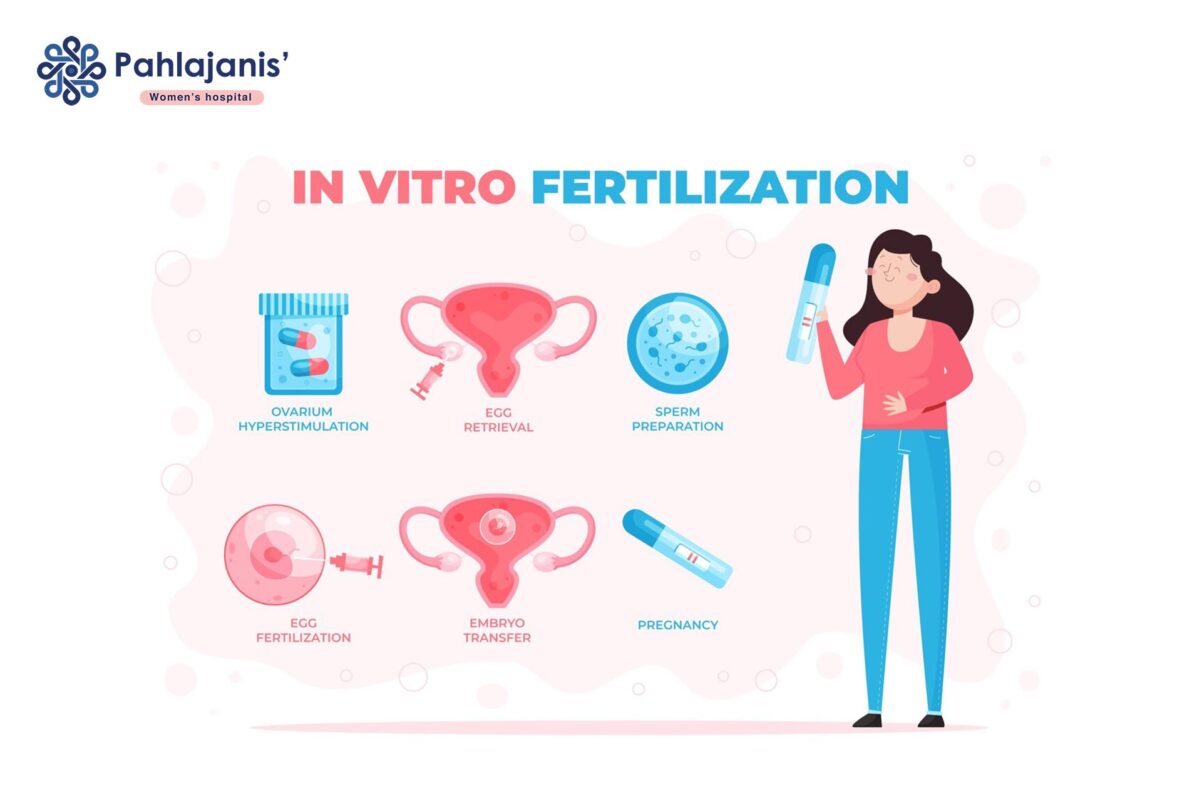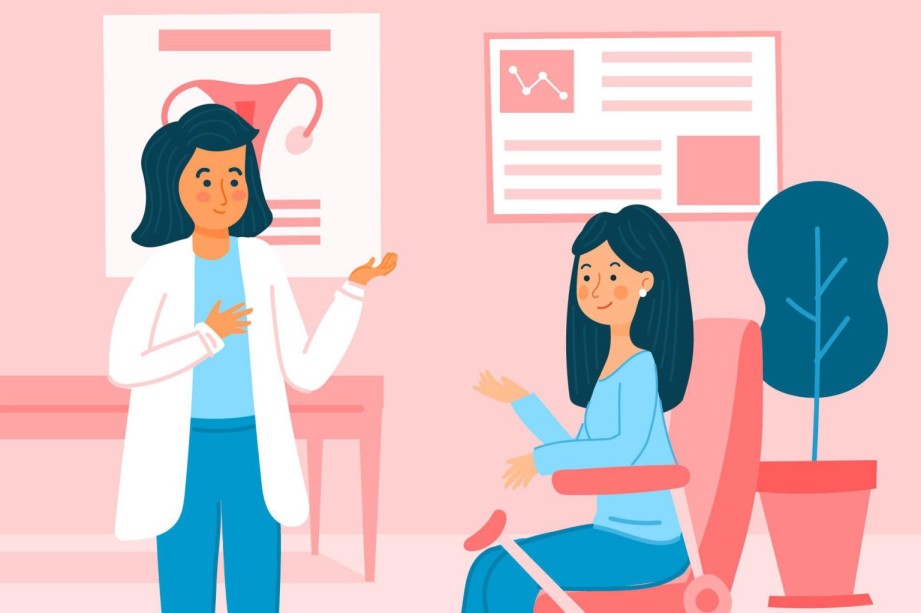Polycystic Ovary Syndrome (PCOS)
Polycystic Ovary Syndrome (PCOS) is a chronic endocrine disorder, that affects women compulsive the phase of ovulation. Infertility with multiple tiny cysts on the ovaries may cause hormonal disorders, particularly in androgen levels. It also affects the production of hormones some of which include irregular periods, excessive hair on the face and body, and acne. Therefore, PCOS is not curable; however, treatments and measures to maintain a better quality of life can be adopted.
Understanding Hormonal Imbalances in Polycystic Ovary Syndrome
Polycystic Ovary Syndrome (PCOS) is a situation characterized with the aid of a hormonal imbalance that influences diverse factors of a female’s health. This imbalance can disrupt the menstrual cycle, ovulation, and even conception. The hormones that are implicated in PCOS are complex and interrelated; the hypothalamic-pituitary-gonadal axis particularly depends on the correct functioning of these hormones.
- Impact on Menstrual Cycle: PCOS diagnosed by antibody testing is also characterized by high levels of androgen hormones and irregular periods. This say is known to occur due to the hormonal fluctuations that affect female sex hormones such as estrogen and progesterone. The issues concerning the menstrual cycle are a significant area of concern in managing patients diagnosed with PCOS.
- Effects on Ovulation: Hormonal changes that occur in PCOS may include irregular ovulation, which can be often non-existent. This can result in challenges in conception and is among the most widespread complaints experienced by women suffering from PCOS Complaints. This might just correct the hormonal imbalance that is affecting ovulation and consequently help in achieving the pre-planned and desired fertility.
The common disorders and the identified theoretical causes of hormonal imbalances in the cases of Polycystic Ovary Syndrome are as follows:
- Genetic Factors: The research also indicates that the development of Polycystic ovary syndrome is strongly linked with genetic factors. Of the various factors mentioned above, the one that poses a significant risk toward the development of the disease is if you have a history of the disease in your family. It is important to note that hormonal balance also depends on the genes and the inherited amounts of androgens and insulin.
- Insulin Resistance: Abnormal insulin action through peripheral insulin resistance is generally observed in people with PCOS. Thus, when the cells of the body cannot respond appropriately to insulin then the pancreas makes more insulin. These problems can create a vicious cycle where the excess insulin causes the overproduction of androgen, which worsens hormonal imbalances.
- Lifestyle Factors: In addition, the type of diet or the level of motor activity may also influence the hormonal system. Unbalanced diet and sedentary otherwise decreased physical activity may lead to weight increase, and insulin insensitivity changes hormone levels. Lifestyle changes should be minimised to allow for the regulation of various aspects which affect PCOS symptoms.
Symptoms of Hormonal Imbalances in Polycystic Ovary Syndrome
- Irregular Menstrual Cycles: One of the chief symptoms of hormonal dysregulation that is characteristic of patients with PCOS is, for example, menstrual cycle dysfunction. This ranges from cases of skip periods, very scanty, periods, and prolonged and abnormal bleeding periods. We will discuss other manifestations of the condition below, but the hormonal disturbances are tightly connected to them.
- Excessive Hair Growth: Further, there is hirsutism, or the inability to stop growing hair at the appropriate rate. They can range from moderate, which is uneven hair distribution and more than average hair growth, to severe, which is body balding or massive amounts of hair on the chest, stomach, or back. Unfortunately, this specific complaint is as widespread as it is prevalent, hitting up to 70% of PCOS patients.
- Acne and Skin Issues: It is commonly observed that women with this disease have different skin problems such as acne on the back, chest, and face. This acne may persist more than in teenagers and this is usually hard to remove. Also, some people are bound to get oily skin because of them.
Medical Treatments for Hormonal Imbalances in Polycystic Ovary Syndrome
It is conservative and mainly entails treatment of the symptoms as well as hormonal regulation in PCOS. You should consult your doctor regarding the treatment and its consequences if you intend to get pregnant since some treatments can be dangerous for the baby.
- Birth Control Pills: Contraceptive pills are often prescribed to treat irregular periods, mild male pattern androgen disorders and so on, and also in cases of acne. Daily use of progestin can go a long way in giving the right control to these symptoms.
- Anti-Androgen Medications: Some drugs commonly used are anti-androgen drugs since they assist in decreasing androgen levels in the body and hence work in reducing hair growth and acne. Such drugs are beneficial in cases where the patient needs to deal with such conditions as hirsutism.
- Insulin-Sensitizing Drugs: Oral anti-diabetic agents like metformin having insulin-sensitizing effect are commonly employed to decrease insulin resistance in PCOS. These medications can also work to lower the level of androgen slow down the rate of hair growth and even prompt ovulation.
Lifestyle Interventions for Managing Polycystic Ovary Syndrome
Lifestyle changes are the initial treatment choice for Polycystic Ovary Syndrome (PCOS), and therefore they are usually effective. Losing weight helps to manage PCOS symptoms and can increase the chances of conceiving. One realizes that diet and aerobic exercise are two methods on how to lose weight.
- Dietary Changes: Weight loss and exercise are powerful methods for diet for overweight people that can improve their condition. If used properly they can enhance your body’s ability to respond to insulin, reduce the level of glucose in the blood, and in some instances, promote ovulation in women. It is recommended to lose from 5% to 10% of your total body weight to alleviate PCOS symptoms and regular your monthly cycle.
- Exercise: Regular exercise is critical for managing PCOS. It facilitates weight control, improves insulin sensitivity, and can alleviate signs and symptoms. Aim for at least half an hour of slight-intensity exercising most days of the week.
- Weight Management: Let me be clear, being overweight or obese is not synonymous with PCOS but many who face this condition are. Earlier I said that weight gain can alter your hormones, and that is the truth. In case where one is obese or overweight, it is easy to have your hormones regulated by losing some weight. If you manage to shift 10% of your body weight, you are likely to experience improved menstrual cycle.
In which situations should one go to seek medical help for Polycystic Ovary Syndrome?
However, if you happen to meet any of the bigger side effects that include hair growth, acne, or dramatic weight gain you should seek medical attention. These signs and symptoms can be distressing and may imply a need for medical intervention.
If you’ve been trying to get pregnant for more than twelve months without fulfilment, its miles recommended to look for scientific advice. Difficulty in conceiving can be a signal of underlying hormonal imbalances that want to be addressed.
Important to note, that PCOS poses a threat to women’s health in the long run concerning type 2 diabetes and high blood pressure. It is therefore important to undergo routine check-ups as a way of identifying these risks and appropriate treatments.
Treatment at Pahlajanis’ Women’s Hospital
Hormonal imbalances in Polycystic Ovary Syndrome (PCOS) are because by factors together with insulin resistance, hyperandrogenism, and disorder inside the hypothalamic-pituitary-ovarian axis. These imbalances result in signs like strange menstrual cycles, immoderate hair increase, and zits.
At Pahlajanis’ Women’s Hospital and IVF Centre in Raipur, comprehensive remedy options are to be had to address those imbalances. The hospital offers a range of treatments together with lifestyle adjustments, medications like Metformin and anti-androgens, and hormonal treatment options to control PCOS successfully, enhancing each reproductive and universal fitness.
Frequently Asked Questions:
What causes Polycystic Ovary Syndrome (PCOS)?
At present, there is no definite cause of PCOS although some studies have associated it with genetic factors. But, genetic traits, insulin resistance, and lifestyles could have large parts to play towards the development of the disease.
What hormones affect Polycystic Ovary Syndrome (PCOS)?
People with PCOS have a hormonal imbalance related to several hormones, consisting of androgens (like testosterone), luteinising hormone (LH), follicle-stimulating hormone (FSH), estrogen, progesterone, and insulin.
Can Polycystic Ovary Syndrome (PCOS) be cured?
At present, it lacks an established cure though dealing with the symptoms can help in elimination or reduction. It is treatable by medical intervention and alterations in the daily activities which regulate the symptoms quite well.
What are the common symptoms of Polycystic Ovary Syndrome (PCOS)?
Some of the overall signs are delayed and hence irregularities in their menstrual periods, excessive growth of body hair, pimples, and quick gain of unwanted body weight. There may also be irregularity in the number of times a woman can get pregnant.
How is Polycystic Ovary Syndrome (PCOS) treated?
There are five types of treatment – the first one is the changes in lifestyles comprising diet and exercise, the second is the birth control pills and other anti-androgen medications, and the third treatment option is insulin-sensitizing drugs.
When should I consult a physician on issues relating to Polycystic Ovary Syndrome (PCOS)?
You should consult your doctor if you feel that you have complications, you are unable to conceive or if you are having severe prejudices including the development of type 2 diabetes and heart conditions.

